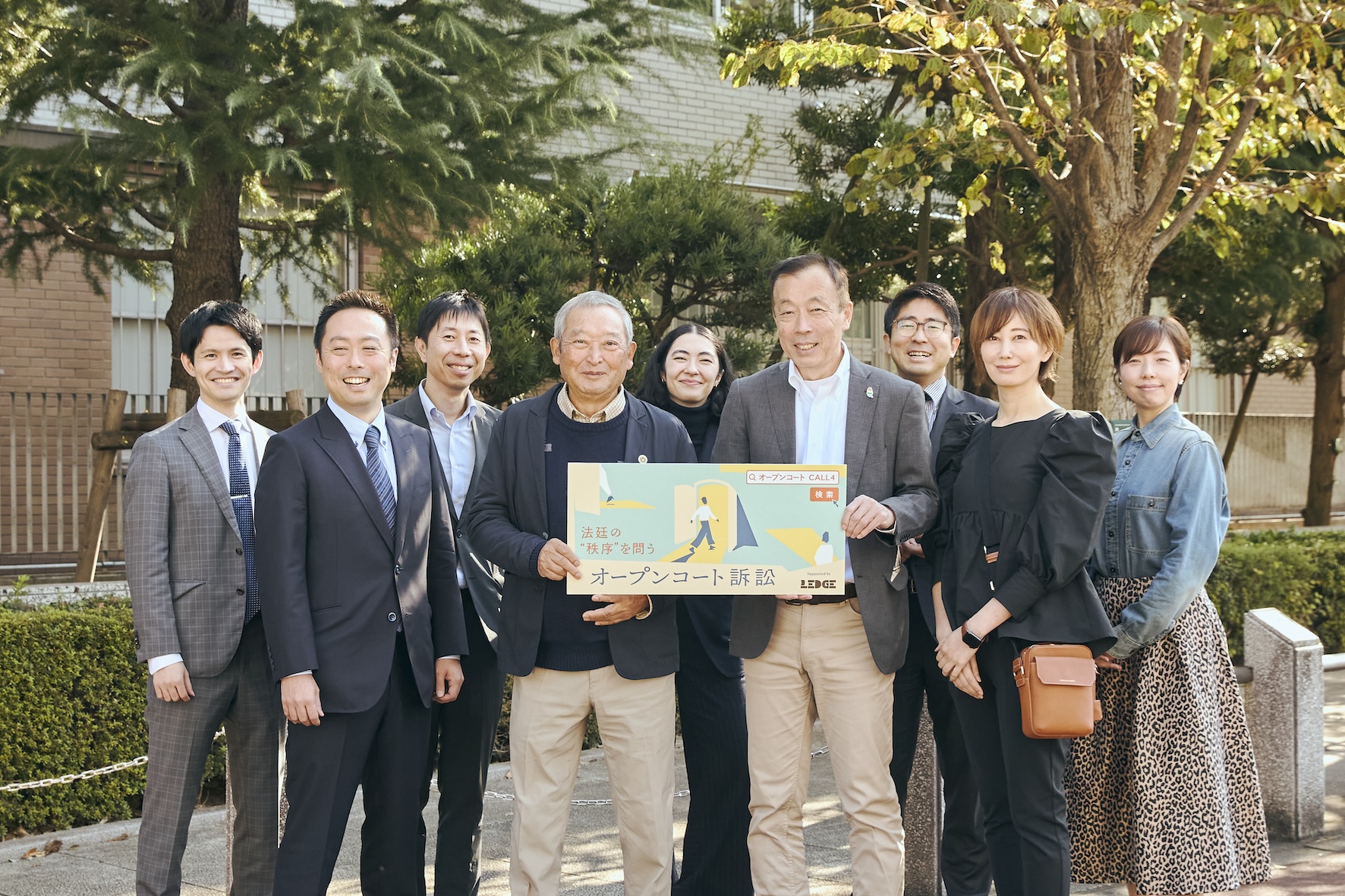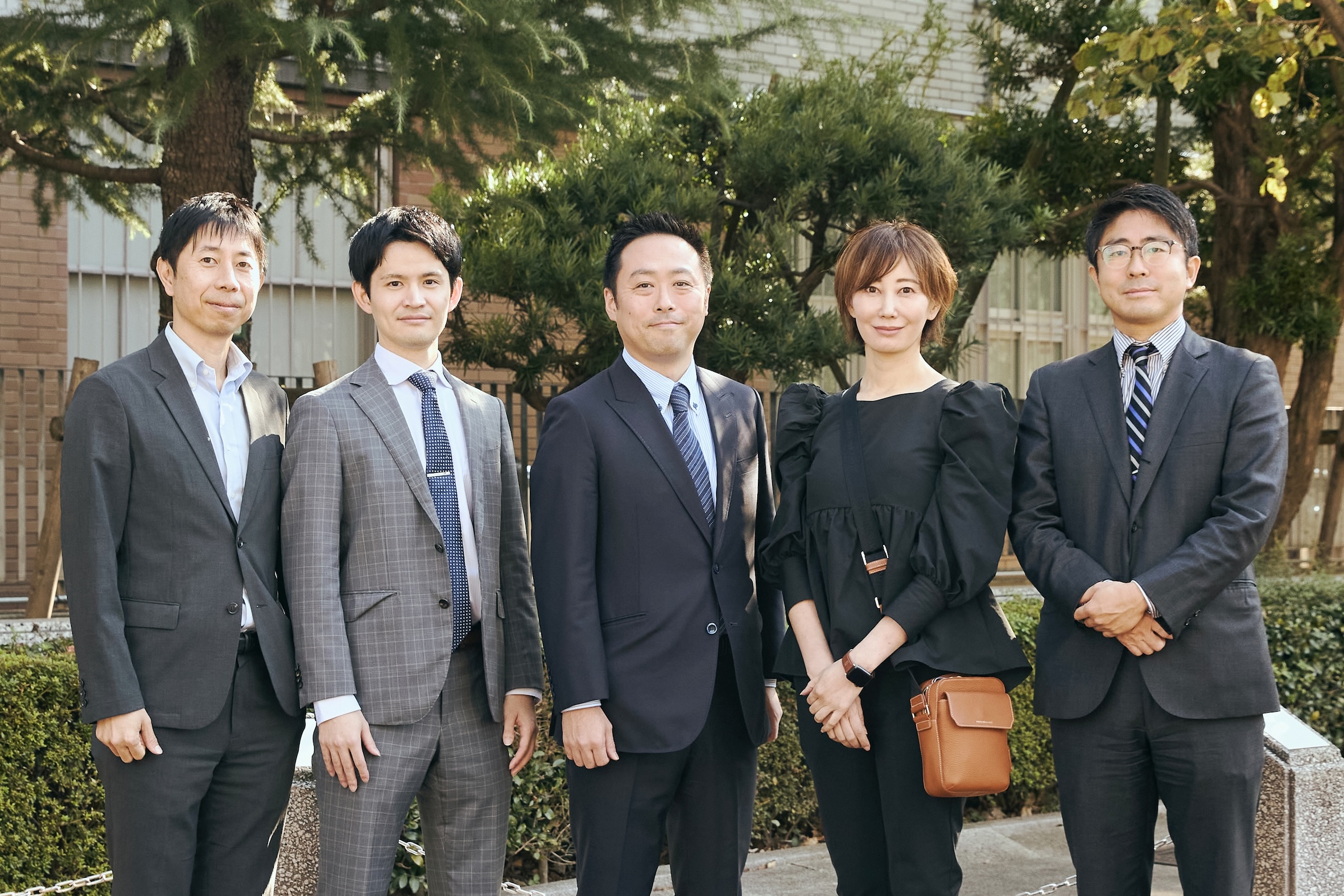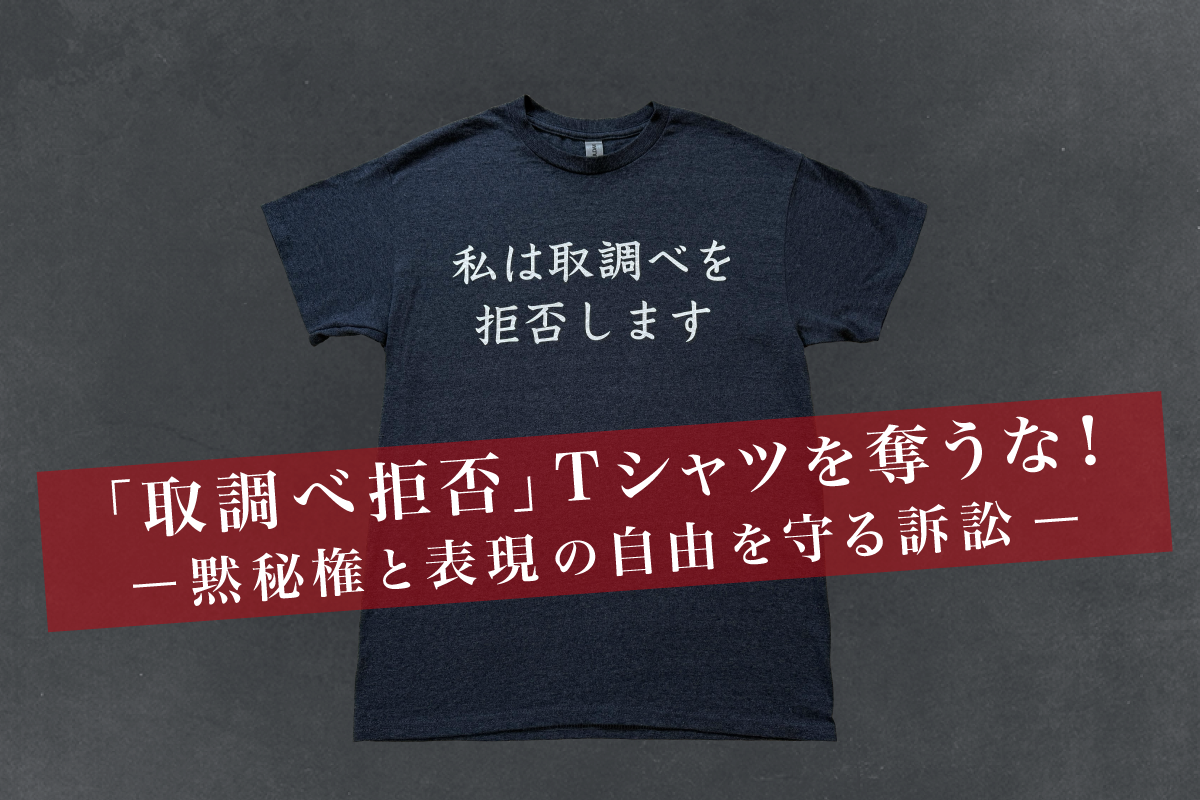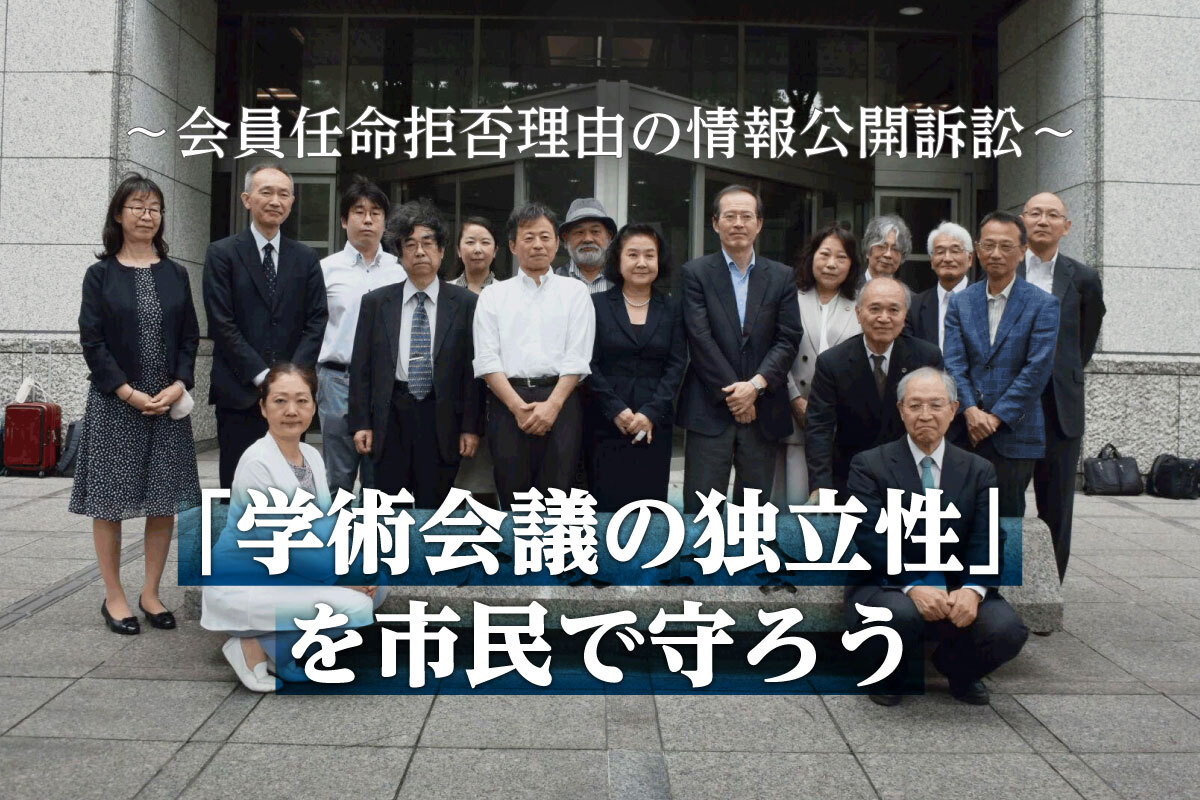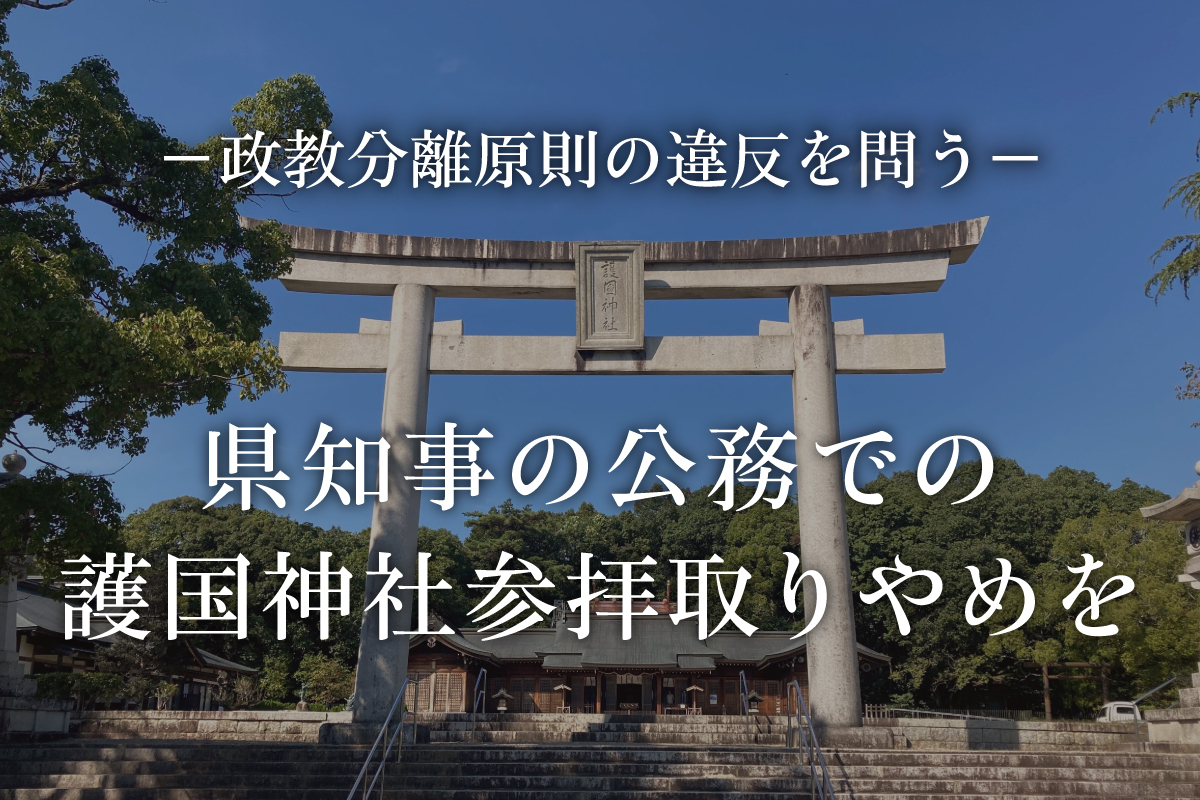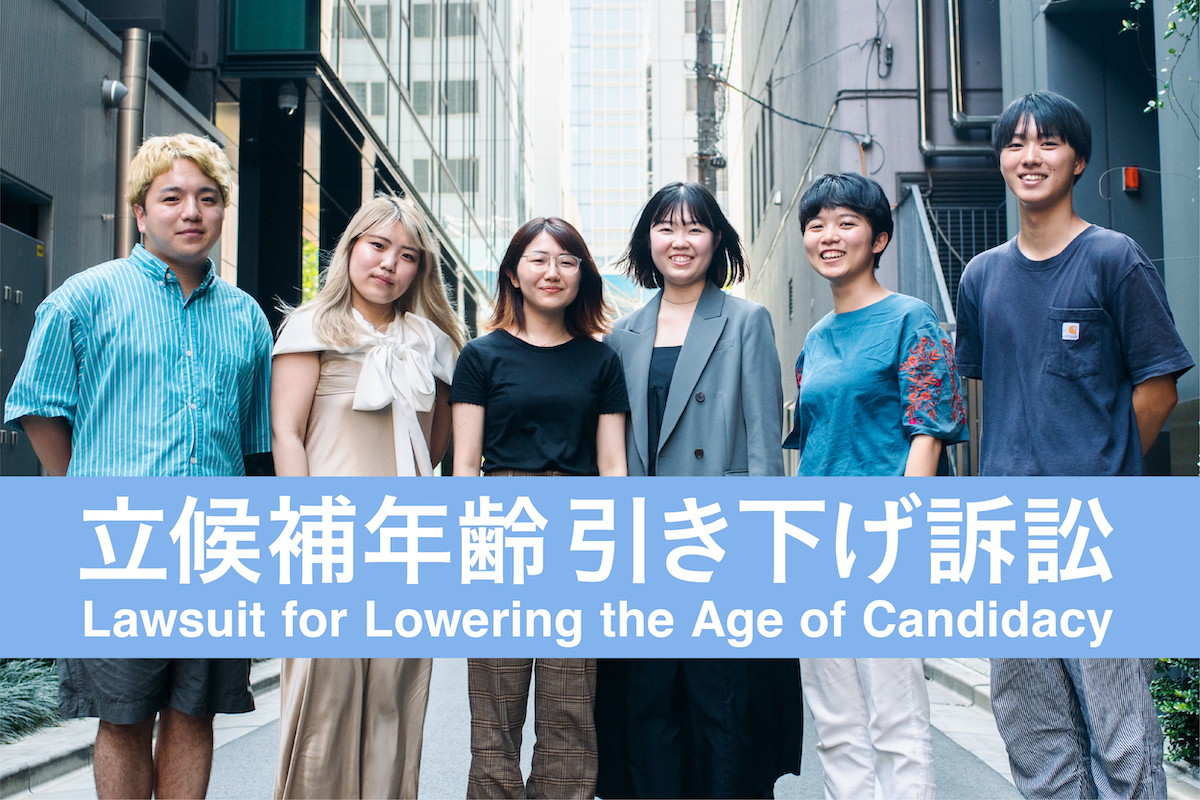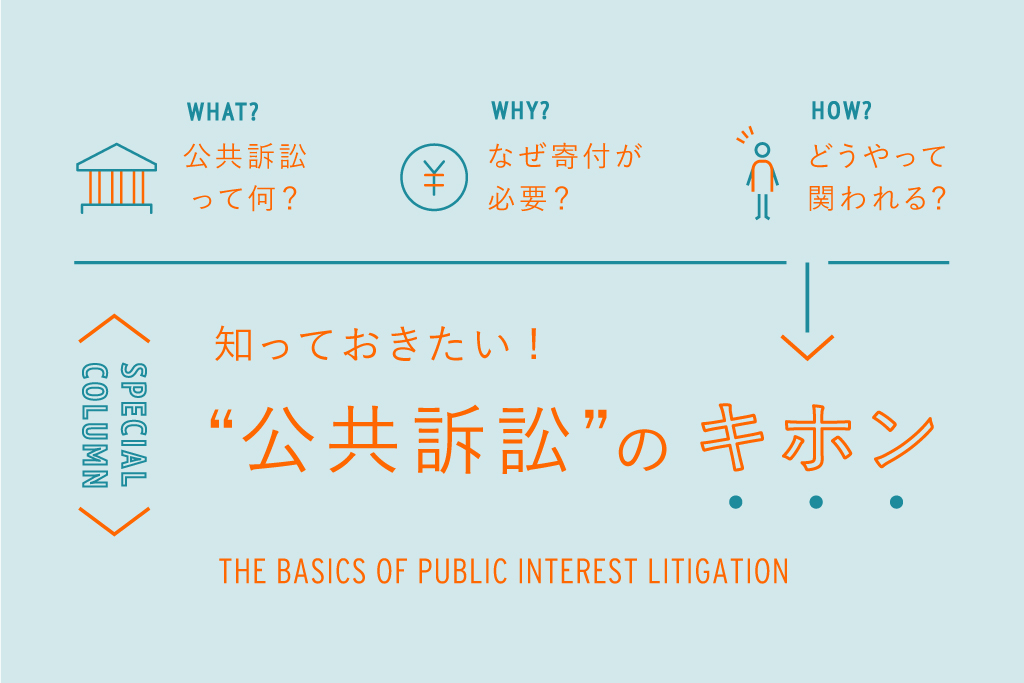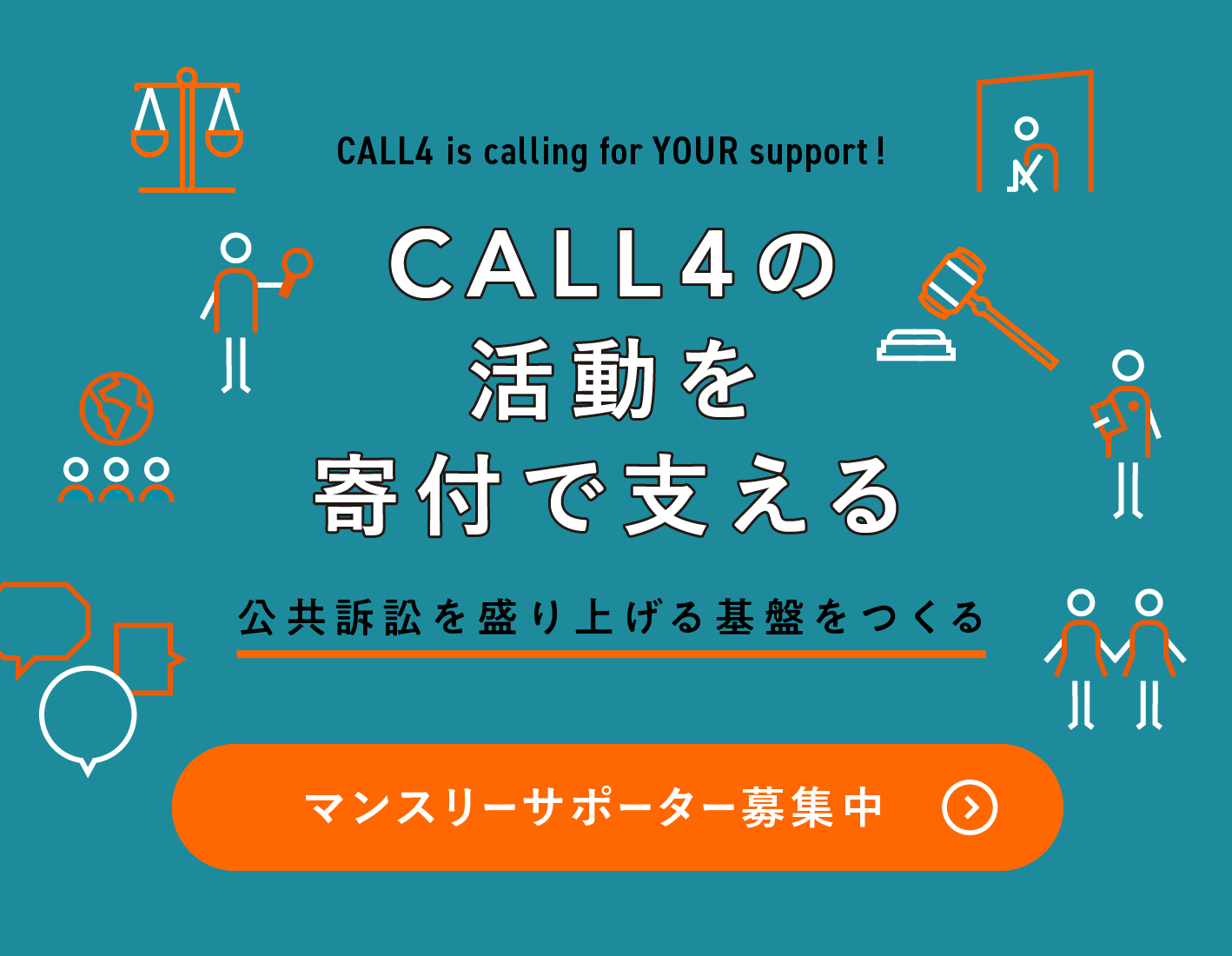オープンコート訴訟 —法廷の“秩序”を問う— Open Court Lawsuit — Questioning the “Order” in the Courtroom —
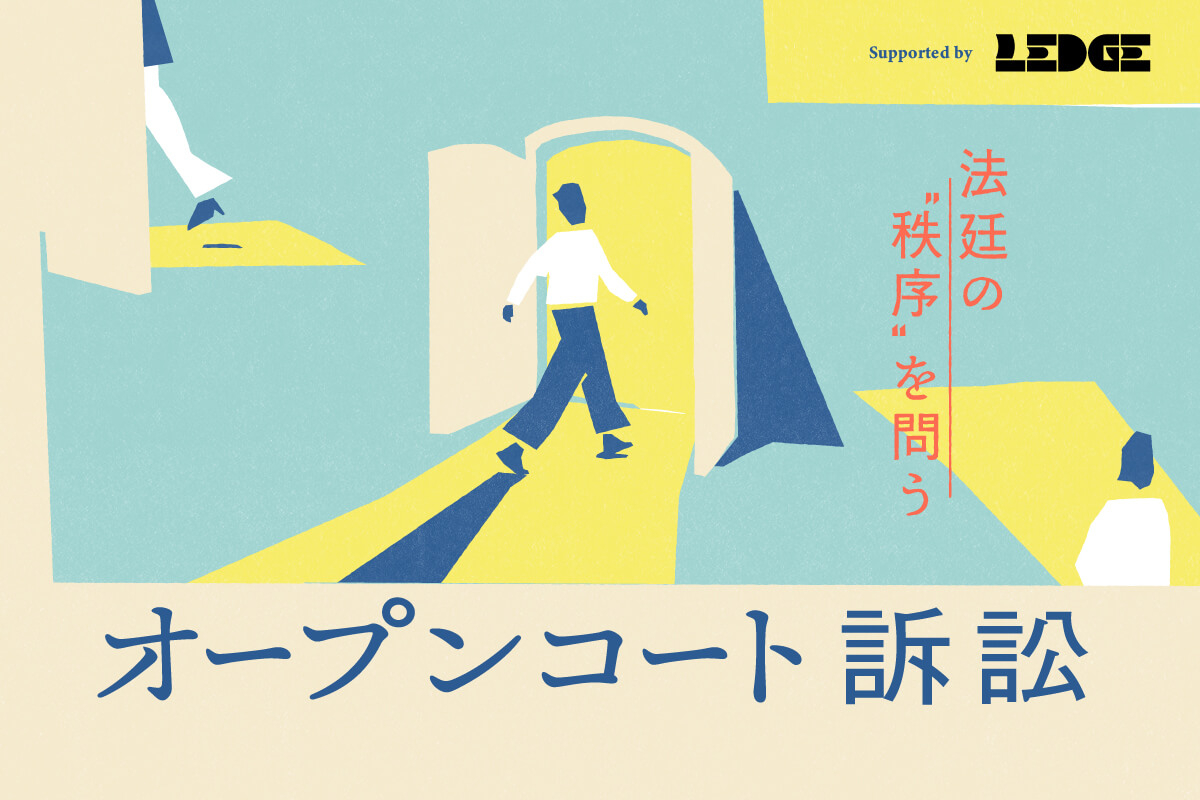
この訴訟の原告らは、自らのアイデンティティや仲間との連帯、尽力してきた活動を象徴するアイテムを身につけて裁判に参加しようとしたところ、裁判官はこれらを隠すよう命じました。その理由は法廷の“秩序”。この命令により、原告らは、裁判の傍聴や円滑な弁護活動を諦めるか、大切なアイテムの着用を諦めるか、という二者択一を迫られました。私たちは、法廷の”秩序”の意義を問い直し、より開かれた裁判の実現を目指します。 The plaintiffs in this lawsuit attempted to attend the trial wearing items that symbolize their identity, solidarity with their peers, and the causes they have long worked for. However, the judges ordered them to conceal these items, citing the need for “order” in the courtroom. As a result of this order, the plaintiffs were forced to choose between giving up their right to observe and participate fully in the trial and concealing the cherished items that hold deep meaning to them. This lawsuit questions the meaning of “order” in the courtroom and works toward a more open and accessible court.
はじめに
この訴訟の原告の1人は、同性婚訴訟の傍聴においてレインボー柄の靴下を履き、また、他の2人は袴田事件の再審の傍聴・弁護活動において、支援団体のバッジや「HAKAMADA」とデザインされたパーカーを身につけていました。それらは原告らにとって特別な想いがこめられたアイテムでしたが、裁判長はそれらを隠す、ないしは外すことを命じました。この裁判は、傍聴人や弁護人に対する服装や装飾品についての裁判長の命令は違法だとして、国家賠償を求める事案です。
「たかだかソックスーつの話だろう」「法廷は厳粛な場なのだから、裁判長の指示に従うべきだ」と感じるでしょうか?
しかし、本来、法廷は開かれた場です。原告・弁護団の大切なアイテムを身につけることは、理由なく制限されてはなりません。
裁判長の権限は、法廷の秩序を維持するためのものです。小さなバッジやソックスは秩序を乱すものではありません。
この訴訟は、法廷が開かれた場であるために、裁判長の権限行使の限界を問うものです。
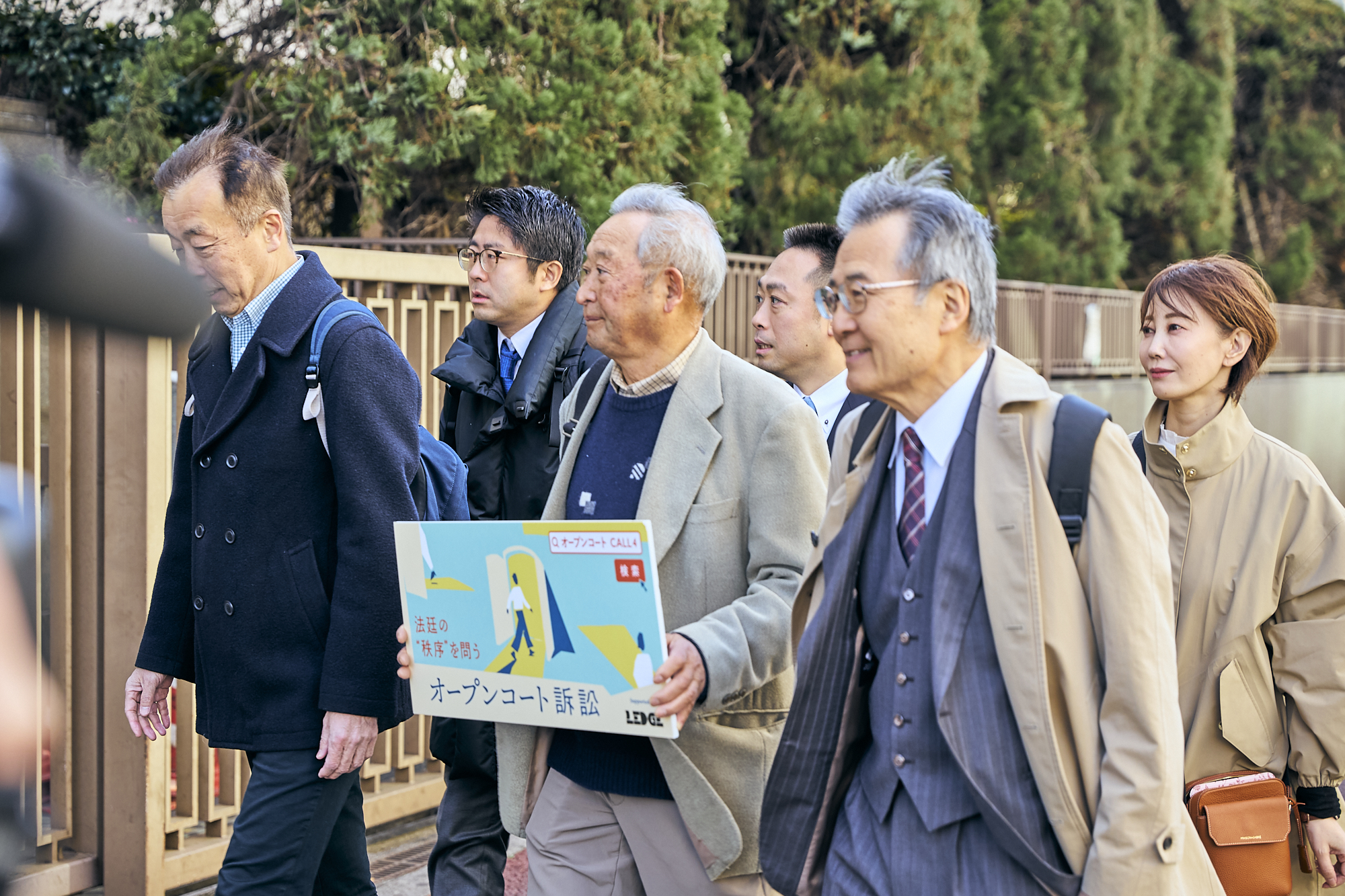
▲2024年11月13日東京地裁に提訴(1枚目)、2025年2月13日第1回口頭弁論期日(2枚目)
事案の概要
この裁判では3つの事案における裁判長の命令の適法性を対象としています。
1. 同性婚福岡訴訟
1つ目は、同性婚福岡訴訟です。原告の鈴木さんは、「「結婚の自由をすべての人に」訴訟」の傍聴において、レインボー柄の靴下を履いて、法廷に入ろうとしました。
▲鈴木さんが傍聴の際に履いていた靴下
すると裁判所職員が、入廷するのであればレインボー柄の部分を隠すように命じました。鈴木さんは長らく応援してきた裁判を傍聴をするため、やむなく命令に従いました。
鈴木さんにとってレインボー柄は単なるデザインではありません。鈴木さんは性的マイノリティの権利保障等を研究する法学者であり、自らも性的マイノリティのひとりとして「「結婚の自由をすべての人に」訴訟」を応援していました。また、レインボー柄は性的マイノリティのアイデンティティや当事者・支援者の連帯を象徴するという意味合いも持っています。
鈴木さんにとってレインボー柄は、自身のライフワークに関わる訴訟において、自身のアイデンティティを象徴し、性的マイノリティ同士の連帯を示す証でした。
2. 袴田冤罪事件①
2つ目は、いわゆる袴田冤罪事件に関する裁判所の命令です。
原告の清水さんは、長年の支援者であり、袴田サポーターズクラブの代表を務めています。清水さんが袴田事件の再審公判を傍聴しようとしたところ、裁判所職員は、傍聴するのであればサポーターズクラブのバッジを取り外すとともに、着用していたパーカーの「HAKAMADA」の文字を養生テープで隠すよう命じました。
度重なる落選の末、第14回公判期日にして初めて傍聴に当選した清水さんは、傍聴を諦めることはできず、バッジを外しました。「HAKAMADA」の文字には何重にも養生テープが貼られました。
▲「FREE HAKAMADA」の文字が背中に入ったパーカー
このバッジはサポーターズクラブの代表である清水さんが支援活動の象徴として自らデザインしたもので、普段から身につけていました。バッジは支援者としてのアイデンティティを確認し、袴田氏に思いを馳せ、他の支援者との連帯を示すシンボルでもありました。裁判所の命令はこのような文脈で着用されたバッジとパーカーを対象とするものでした。
3. 袴田冤罪事件②
3つ目は、同じく袴田冤罪事件に関するものです。
原告の小川弁護士は、袴田氏の主任弁護人であり、初回の再審公判から、サポーターズクラブのバッジをつけて弁護にあたっていました。しかし、第14回公判期日になって、裁判長は突然、バッジを外すよう命じました。その期日の後、小川さんは抗議しましたが、その抗議は認められず、第15回公判期日以降、公判への支障を避けるため、やむなくバッジを外して弁護活動にあたりました。
小川弁護士にとって、バッジは重要な意味を持ちます。小川弁護士は弁護士になってすぐ、約40年にもわたって袴田事件の再審開始に向けて尽力し、その弁護活動は支援者との協力があってこそのものでした。小川弁護士にとってバッジは、自らのアイデンティティを象徴するものであり、バッジの着用は弁護人としての活動の一環でもあったのです。
▲袴田サポーターズクラブのバッジ
本訴訟の争点
この訴訟は、鈴木さん、清水さん、そして小川さんに対して、靴下やバッジ、パーカーの文字を見えないようにした裁判官の命令が、法律に違反するかどうかが争点です。
裁判官が傍聴人の服装などについて命令するための根拠は、法廷警察権だと考えられます。法廷警察権とは、法廷の“秩序“を維持するため、その期日を担当する裁判長に認められた権限であり、裁判所法71条1項に定められています。
裁判所法71条1項
法廷における秩序の維持は、裁判長又は開廷をした一人の裁判官がこれを行う。
もっとも、法廷警察権は無限定に行使できるわけではありません。法律上、命令の対象者は、①「法廷における裁判所の職務の執行を妨げ」る者か、②「不当な行状をする者」のみに限定されています。
裁判所法71条2項
裁判長又は開廷をした一人の裁判官は、法廷における裁判所の職務の執行を妨げ、又は不当な行状をする者に対し、退廷を命じ、その他法廷における秩序を維持するのに必要な事項を命じ、又は処置を執ることができる。
実務上、その具体的な内容は次のとおり整理されています。
① については、訴訟関係人に対する暴行や暴言・喧騒行為といった「法廷における静粛で秩序正しい手続の進行を妨害する行為」をいいます。
② の「不当な行状」とは、酩酊状態での入廷、法廷内における飲食や喫煙、異様な服装、暴言・暴行等「法廷において一般に守られるべき節度」を欠く行為や態度・服装をいいます。
原告らは平穏に傍聴をしようと、また弁護人として必要な弁護活動をしようとしただけであり、「法廷における裁判所の職務の執行を妨げ」るような行為とはいえません。
また、一般に市販されているレインボー柄の靴下を履くことも、直径約2cmの小さなバッジを身につけることも、再審事件の支援者が支援の意思を表すパーカーを着ることも、社会で日常的に行われていることであり、「不当な行状」にもあたりません。
裁判長の法廷警察権の行使は、法律の要件を無視するもので、違法であると主張しています。
社会的意義
1. 過度な法廷警察権の行使を抑制し、公開裁判の原則を守る
第1に、この訴訟は過度な法廷警察権の行使を抑制し、公開裁判の原則を守るという意義があります。本来、裁判所は開かれた場です。
憲法82条
裁判の対審及び判決は、公開法廷でこれを行ふ。
裁判傍聴と聞くと堅いイメージを持たれるかもしれませんが、明るい服装で傍聴に行くことも問題なく、円滑な裁判や他の傍聴人の傍聴を妨げない限り、自由は認められています。規制権限の過度な行使は、本来認められるべき自由さえも制約し、開かれた法廷という憲法の要請に反します。
2. 司法に対する国民の信頼を維持する
第2に、司法に対する国民の信頼を維持するという意義も有します。
裁判が真に公開されることで、裁判官を公衆が環視することができ、他の訴訟関係人に対しても真実性や節度が求められることに繋がります。こうした環境が整うことで初めて、豊かで公平な弁論が担保され、司法に対する信頼が築かれます。仮に法廷警察権の濫用や、命令に従わなければ傍聴できないという運用を許せば、裁判の公開原則は骨抜きになってしまい、裁判長による傍聴人の選別や、秘密裁判の常態化すら可能となりえます。
加えて、裁判に関心がある人々が「傍聴は面倒で、厄介で、ストレスがかかるものだ」と傍聴に消極的となれば、司法に対する国民の信頼も損なわれかねません。
3. 弁護人が有する弁護権を脅かされないようにする
第3に、弁護人が有する弁護権を脅かされないようにするという意義も有します。
弁護権とは、刑事訴訟において弁護人が被告人の利益を保護するために、憲法上認められている権利です。
弁護人の弁護権は、被告人と検察官とが対等な立場で刑事訴訟に臨むために不可欠です。仮に、法廷警察権の濫用が許されると、弁護人は裁判所に対し、妥協して協力せざるを得ず、弁護活動に支障をきたします。
つまり、法廷警察権の濫用は弁護権を制約し、弁護人は被告人の利益の保護という本来の職責を果たせなくなる恐れがあります。
この3つの観点から、この訴訟を通じて、行き過ぎた法廷警察権の行使に歯止めをかけ、より開かれた司法を実現することを目的としています。
資金の使途
訴訟活動全般に利用します。
訴訟の手数料やコピー代などの実費、憲法学者など専門家の意見書依頼費用、原告らの交通費が中心です。
原告の思い
原告 鈴木 賢さん(法学者)
六色の虹色は性の多様性の象徴、マイノリティであるLGBTQ+連帯の旗印。それは私たちが世の中に存在していることを可視化させ、誇りを取り戻そうとする覚悟の表れでもあります。レインボーが裁判所の職務の執行を妨げ、それを身につけることが不当な行状に当たるとして法廷から排除することは、私たちの存在の否定を意味します。
正義の回復を求め希望を託した司法。民主主義国家の司法に相応しくない不当な排除と差別に強く異議を申し立てます。
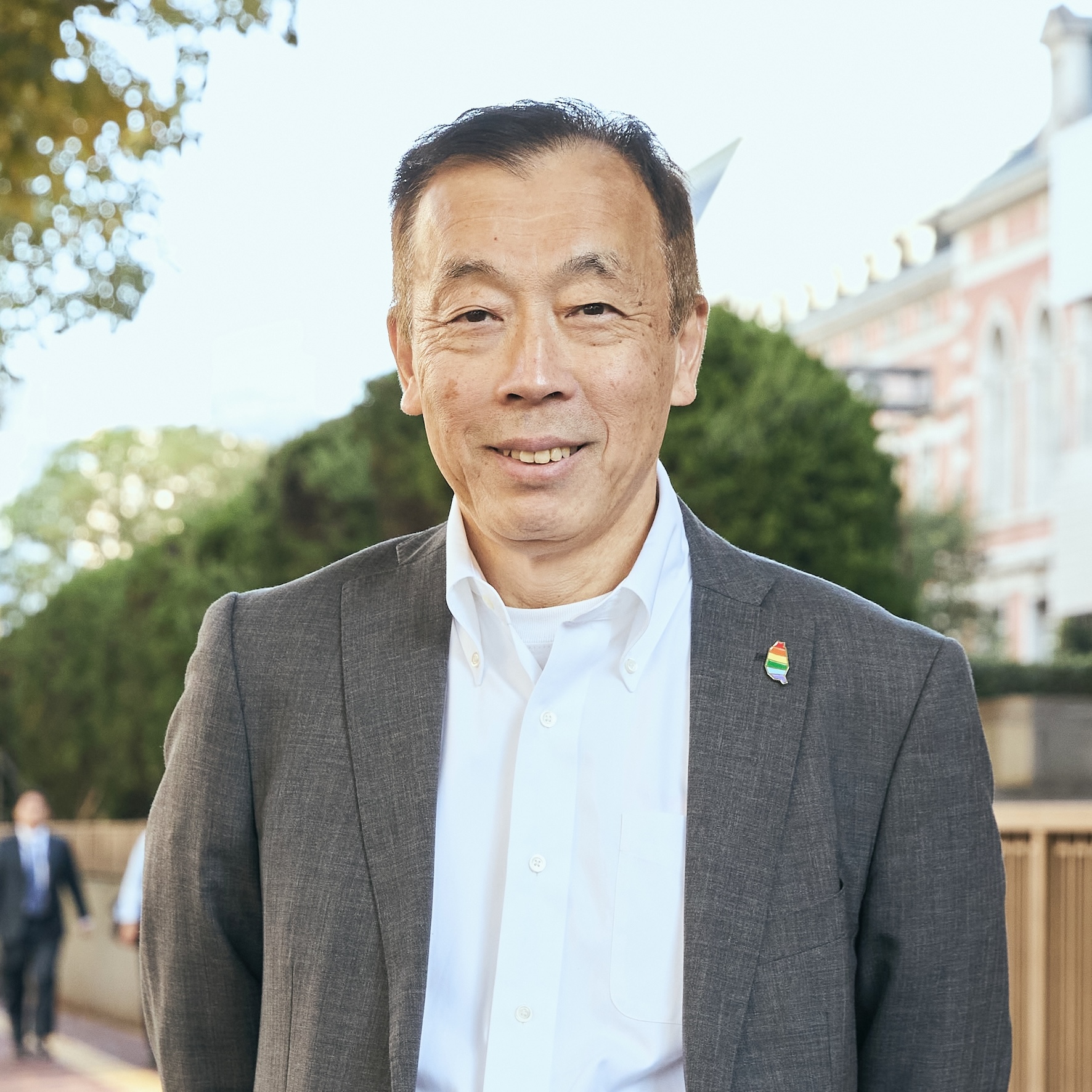
原告 小川秀世さん(袴田事件弁護団事務局長)
一般市民が裁判を傍聴するということは、我が国の司法に対する国民の信頼を維持する上で、最も重要な制度と言っても過言であはりません。だからこそ、裁判所は広報などで広く裁判の傍聴を促しています。
法廷警察権があるからといって、それを過剰に行使するべきではないと思います。こうした過剰な制約は、裁判の公開や弁護人としての訴訟活動を大きく制約することになります。
この訴訟が適切な法廷警察権の行使を考える一つの問題提起となることを願ってます。
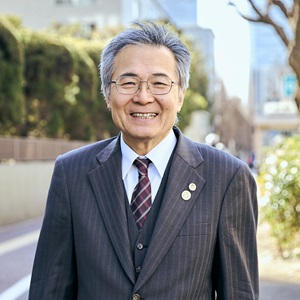
原告 清水一人さん(「袴田サポーターズ・クラブ」代表)
歴史的な結末を迎えた袴田事件の再審公判でしたが、そこにおける法廷警察権の濫用を悪しき前例にしたくはありません。裁判の公開は、民主的な社会にとって基本的な原則の一つであり、公平な裁判の実現と市民の権力監視にとって、必要不可欠なものだと思います。
裁判所には、原則にしたがって、安易に傍聴人を排除することがないように、適切に法廷警察権が行使される基準を示していただきたいと思います。
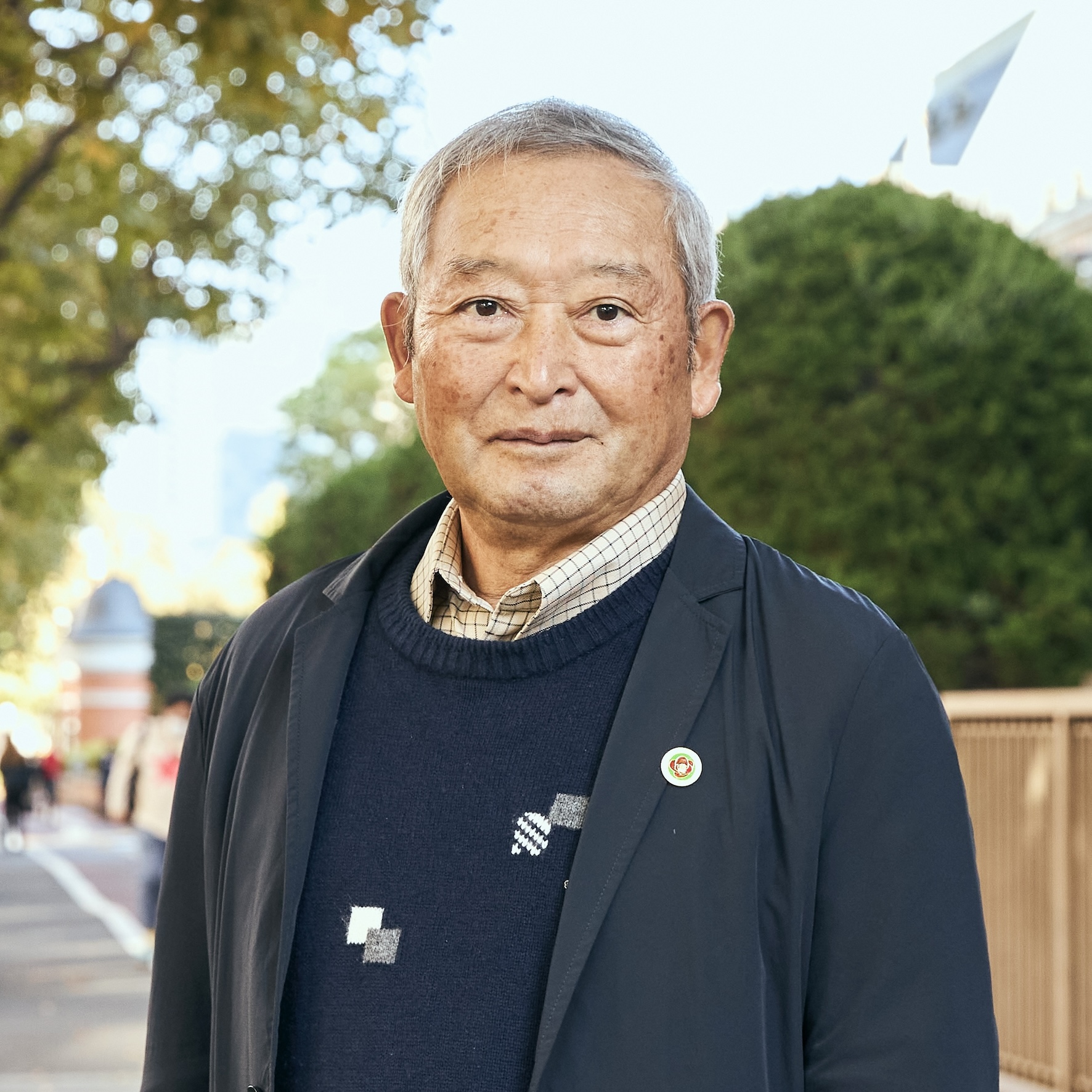
担当弁護士のメッセージ
法廷の秩序はもちろん大事ですが、それは公開裁判の原則や法律の規定を無視するものであってはなりません。
この訴訟を通じて、”秩序”の意義を問い直し、市民に開かれた法廷(オープンコート)を実現したいと思います。
弁護団長 亀石倫子
弁護団
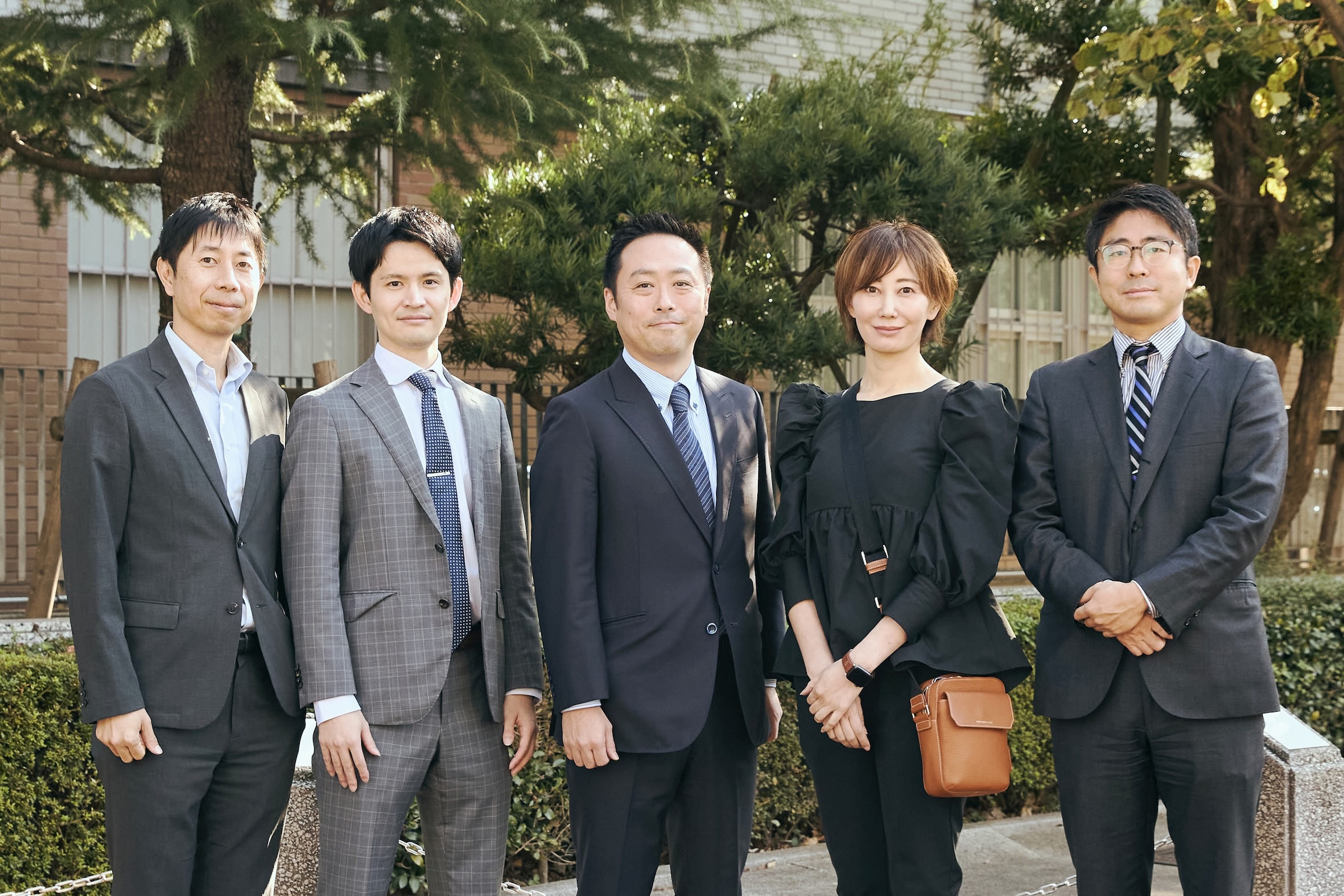
亀石倫子(法律事務所エクラうめだ・一般社団法人LEDGE代表理事)
水野泰孝(水野泰孝法律事務所・一般社団法人LEDGEパートナーズ)
井桁大介(宮村・井桁法律事務所・一般社団法人LEDGE事務局長)
加藤雄太郎(長島・大野・常松法律事務所)
谷口太規(弁護士法人東京パブリック法律事務所・一般社団法人LEDGE理事)
戸田善恭(法律事務所LEDGE)
LEDGEについて
LEDGEは、特定の公共訴訟を支えるために作られた、各種専門家によるチームです。
本訴訟はLEDGEの支援を受けています。(本訴訟の弁護団の一部はLEDGEのメンバーです)
下記の公式サイト・SNSにて、オープンコート訴訟の最新情報の告知等も行なっていきますので、よろしければぜひフォローください。
LEDGE公式サイト / 公式X(旧Twitter) / 公式Instagram
*Translated by Google translate
Introduction
One of the plaintiffs in this case wore rainbow socks while attending the hearing of the same-sex marriage lawsuit, and the other two wore badges of support groups and hoodies with the word "HAKAMADA" while attending the hearing and defending the Hakamada case retrial. These were items that held special meaning for the plaintiffs, but the presiding judge ordered them to hide or remove them. This case is seeking state compensation, arguing that the presiding judge's orders regarding the clothing and accessories of spectators and lawyers were illegal.
Would you feel that it is just a matter of a few socks, or that the courtroom is a solemn place and you should follow the judge's instructions?
However, a courtroom is an open forum, and the right of plaintiffs and their legal team to wear important items should not be restricted without reason.
The presiding judge's powers are there to maintain order in the courtroom. A little badge or a pair of socks does not disrupt order.
This case questions the limits of the presiding judge's ability to exercise his or her powers in an open courtroom.

▲ Lawsuit filed in the Tokyo District Court on November 13, 2024 (1st photo), first oral argument hearing on February 13, 2025 (2nd photo)
Overview of the case
The trial concerns the lawfulness of the presiding judge's orders in three cases.
1. Same-Sex Marriage Fukuoka Lawsuit
The first is the Fukuoka Same-Sex Marriage Lawsuit. The plaintiff, Suzuki-san, tried to enter the courtroom wearing rainbow socks while attending the "Freedom of Marriage for All" lawsuit.
▲The socks that Suzuki was wearing while attending the hearing
A court official then ordered Suzuki to cover the rainbow pattern if he wanted to enter the courtroom. Suzuki had no choice but to comply with the order in order to attend the trial he had supported for a long time.
For Suzuki, the rainbow pattern is not just a design. Suzuki is a legal scholar who studies the protection of the rights of sexual minorities, and as a sexual minority himself, he supported the "Freedom of Marriage for All" lawsuit. The rainbow pattern also symbolizes the identity of sexual minorities and the solidarity of those involved and their supporters.
For Suzuki, the rainbow pattern symbolized her own identity and was a sign of solidarity with other sexual minorities in the lawsuit that was her life's work.
2. Hakamada False Accusation Case①
The second is a court order regarding the so-called Hakamada false accusation case.
The plaintiff, Shimizu, is a long-time supporter of Hakamada and the representative of the Hakamada Supporters Club. When Shimizu attempted to observe the retrial of the Hakamada case, court officials ordered him to remove his Supporters Club badge and cover the "HAKAMADA" lettering on his hoodie with masking tape if he wanted to observe.
After being rejected several times, Shimizu was finally able to sit in on the 14th trial, but he was unable to give up and took off his badge. The word "HAKAMADA" was covered with multiple layers of masking tape.
▲ A hoodie with the words "FREE HAKAMADA" on the back
The badge was designed by Shimizu, the representative of the Supporters Club, as a symbol of their support activities and was worn regularly. The badge was a symbol of their identity as supporters, their memory of Hakamada, and their solidarity with other supporters. The court order targeted the badge and the hoodie worn in this context.
3. Hakamada False Accusation Case②
The third is also related to the Hakamada false accusation case.
The plaintiff's lawyer, Ogawa, was the lead defense lawyer for Mr. Hakamada, and had been wearing the Supporters Club badge since the first retrial hearing. However, at the 14th hearing, the presiding judge suddenly ordered him to remove the badge. After that hearing, Ogawa protested, but his protest was not accepted, and from the 15th hearing onwards, he was forced to remove the badge and continue his defense activities in order to avoid disrupting the trial.
For Attorney Ogawa, the badge has an important meaning. Soon after becoming a lawyer, Attorney Ogawa worked hard for about 40 years to start a retrial of the Hakamada case, and his defense work was only possible with the cooperation of his supporters. For Attorney Ogawa, the badge symbolized his identity, and wearing the badge was also part of his activities as a defense lawyer.
▲Hakamada Supporters Club badge
The issues in this lawsuit
The lawsuit is about whether a judge's order requiring Suzuki, Shimizu and Ogawa to hide the writing on their socks, badges and hoodies violates the law.
The basis for a judge to order spectators regarding their attire is thought to be court police power. Court police power is the authority granted to the presiding judge in charge of a particular hearing in order to maintain "order" in the courtroom, and is stipulated in Article 71, Paragraph 1 of the Court Act.
Article 71, paragraph 1 of the Court Act
The presiding judge or the judge who opened the courtroom shall be responsible for maintaining order in the courtroom.
However, court police powers cannot be exercised without limitations. Legally, those who can be subject to orders are limited to those who 1) "hinder the execution of the court's duties in court" or 2) "behave unlawfully."
Article 71, paragraph 2 of the Court Act
The presiding judge or a judge who has opened a court may order any person who obstructs the performance of court duties or behaves improperly to leave the court, and may issue other orders or take measures necessary to maintain order in the court.
In practice, the specific details are as follows:
Regarding ①, this refers to "acts that disrupt the quiet and orderly progress of courtroom proceedings," such as assault, abusive language, or disruptive behavior against those involved in the litigation.
② "Inappropriate behavior" refers to actions, attitudes, or clothing that lack the "decency that should generally be observed in a courtroom," such as entering the courtroom in an intoxicated state, eating, drinking, or smoking in the courtroom, wearing strange clothing, and using abusive language or assault.
The plaintiffs were merely attempting to attend the hearing peacefully and to engage in the necessary legal activities as defense attorneys, and their actions cannot be considered to have "interfered with the court's performance of its duties in court."
In addition, wearing commercially available rainbow patterned socks, wearing small badges measuring approximately 2 cm in diameter, and supporters of retrial cases wearing hoodies to show their support are all commonplace in society and do not constitute "inappropriate behavior."
It is argued that the presiding judge's exercise of court police powers ignores the requirements of law and is therefore illegal.
Social significance
1. Restraining excessive use of court-police powers and upholding the principle of open trials
First, this lawsuit is significant in that it serves to curb the excessive exercise of court-police power and uphold the principle of open trials. Courts are essentially open places.
Article 82 of the Constitution
Trials and judgments shall be conducted in open court.
The term "observing a trial" may conjure up a stiff image, but there is no problem with attending in light clothing, and as long as you do not interfere with the smooth running of the trial or the observation of other spectators, you are allowed to do so freely. Excessive use of regulatory power restricts even the freedoms that should be allowed, and goes against the Constitution's requirement of open courts.
2. Maintaining public confidence in the judiciary
Secondly, it is significant in maintaining public confidence in the judiciary.
Truly open trials allow the public to keep an eye on the judges, which leads to expectations of honesty and restraint from other litigants. Only when such an environment is in place can rich and fair arguments be guaranteed and trust in the judiciary be built. If we allow the abuse of courtroom police powers or the practice of not being able to observe trials unless orders are followed, the principle of open trials will be weakened, and it could even become possible for the presiding judge to select observers and for secret trials to become the norm.
In addition, if people who are interested in trials are reluctant to attend because they believe that attending trials is troublesome, bothersome and stressful, public trust in the judiciary could be undermined.
3. Ensure that the right of counsel to defend a defendant is not threatened
Thirdly, it serves the purpose of ensuring that the lawyer's right to defense is not threatened.
The right to counsel is a constitutionally recognized right for the defendant to have a lawyer to protect his or her interests in criminal proceedings.
The right of a defense lawyer to represent the defendant is essential for a criminal trial in which the defendant and the prosecutor are on an equal footing. If the abuse of court-police powers were permitted, defense lawyers would have no choice but to compromise and cooperate with the court, which would hinder their defense activities.
In other words, abuse of court-police powers could restrict the right to defense and prevent defense attorneys from fulfilling their primary responsibility of protecting the interests of the defendant.
From these three perspectives, our goal through this lawsuit is to put a stop to the excessive exercise of court-police powers and realize a more open judicial system.
Use of funds
It is used for all litigation activities.
The main expenses are actual costs such as litigation fees and copying costs, fees for requesting opinions from experts such as constitutional scholars, and travel costs for the plaintiffs.
Plaintiff’s thoughts
Plaintiff: Ken Suzuki (legal scholar)
The six colors of the rainbow are a symbol of sexual diversity and a flag of solidarity with the LGBTQ+ minority. They are also an expression of our determination to make our existence visible in the world and to regain our pride. The rainbow is an obstacle to the execution of court duties, and wearing it is considered an inappropriate act, so excluding it from the courtroom means denying our existence.
We place our hopes in the judiciary, seeking the restoration of justice. We strongly protest against the unjust exclusion and discrimination that are unbecoming of the judiciary of a democratic nation.

Plaintiff Hideyo Ogawa (Secretary-General of the Hakamada Case Defense Team)
It is no exaggeration to say that the ability of ordinary citizens to observe trials is the most important system for maintaining public trust in the Japanese judiciary. For this reason, courts widely promote the observation of trials through public relations and other means.
Even though we have court police powers, I don't think they should be exercised excessively. Such excessive restrictions would severely restrict the publicity of trials and litigation activities as defense lawyers.
I hope that this case will raise an issue regarding the appropriate exercise of judicial police powers.

Plaintiff: Kazuto Shimizu (representative of the Hakamada Supporters Club)
The retrial of the Hakamada case reached a historic conclusion, but we do not want the abuse of police power in the courtroom to set a bad precedent. I believe that open trials are one of the basic principles of a democratic society, and are essential for the realization of fair trials and citizen oversight of power.
We would like the courts to set standards for ensuring that court police powers are exercised appropriately, in accordance with principles, and that spectators are not easily excluded.

Message from the lawyer in charge
Order in the courtroom is of course important, but it must not ignore the principle of open trial or the provisions of the law.
Through this lawsuit, we hope to reexamine the meaning of "order" and create an open court that is open to citizens.
Head of defense team: Michiko Kameishi
Defense team

Michiko Kameishi (Representative Director of Eclat Umeda Law Office and LEDGE General Incorporated Association)
Yasutaka Mizuno (Yasutaka Mizuno Law Offices, LEDGE Partners General Incorporated Association)
Daisuke Igeta (Miyamura & Igeta Law Firm, General Secretary of LEDGE Association)
Yutaro Kato (Nagashima, Ohno & Tsunematsu Law Office)
Taiki Taniguchi (Tokyo Public Law Office, Director of LEDGE General Incorporated Association)
Yoshiyasu Toda (LEDGE Law Office)
About LEDGE
LEDGE is a team of specialists created to support specific public litigation cases.
This lawsuit is supported by LEDGE (some of the legal team in this lawsuit are members of LEDGE).
We will also be posting the latest information on open court litigation on the official website and social media accounts listed below, so please follow us if you are interested.
LEDGE Official Website / Official X (formerly Twitter) / Official Instagram
あなたにおすすめのケース Recommended case for you
- 外国にルーツを持つ人々 Immigrants/Refugees/Foreign residents in Japan
- ジェンダー・セクシュアリティ Gender/Sexuality
- 医療・福祉・障がい Healthcare/Welfare/Disability
- 働き方 Labor Rights
- 刑事司法 Criminal Justice
- 公正な手続 Procedural Justice
- 情報公開 Information Disclosure
- 政治参加・表現の自由 Democracy/Freedom of Expression
- 環境・災害 Environment/Natural Disasters
- 沖縄 Okinawa
- 個人情報・プライバシー Personal information/Privacy
- アーカイブ Archive
- 全てのケース ALL
